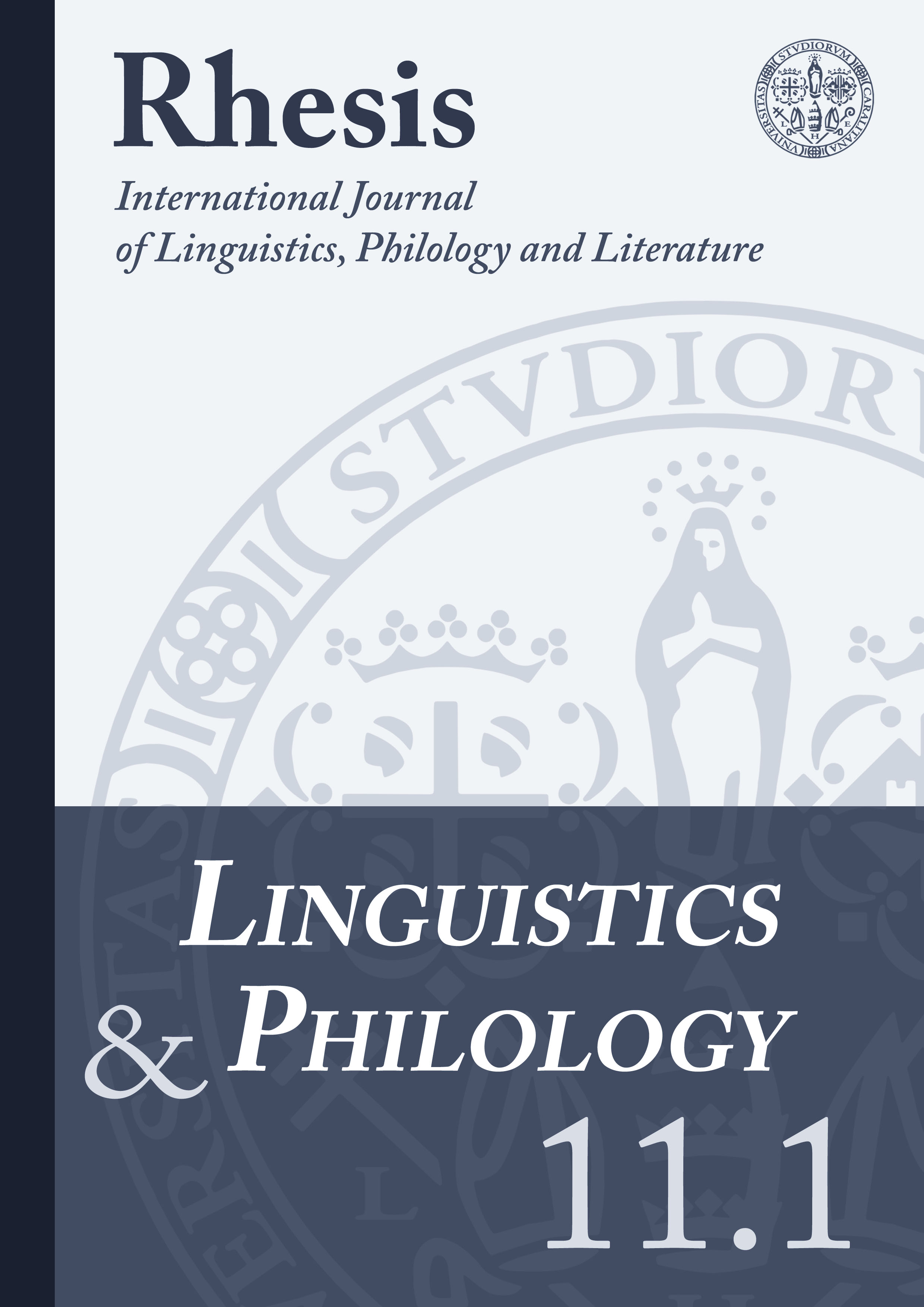Cleone πιθανώτατος: una nota a Thuc. III 37-40
Abstract
Before reporting the famous debate regarding the punishment to be inflicted on the mutinous population of Mytilene, Thucydides describes the demagogue Cleon as being the most successful politician of his age in persuading the demos. The opening section of Cleon’s speech is a particularly significant example of devices and stratagems used to direct the decisional process of the assembly. Through an elaborate linguistic architecture, the demagogue deliberately manipulates the lexicon of the political rhetoric. Operating what at first sight seems to be a paradoxical synthesis of opposite semantics, Cleon reverses ancient topoi and traditional connotations, assigning values, skills and qualities to the demosthat are normally only attributed to the élite. By analysing the terminology he uses, the goal of this work is to demonstrate how the previous rhetorical and ideological uses of this expressive form can be traced back to the democratic propaganda of the age of Pericles.
Downloads
References
Asheri, David; Medaglia, Silvio M. (1990), Erodoto. Storie. Libro III. Traduzione di A. Fraschetti, Milano, Mondadori, Fondazione Lorenzo Valla.
Battisti Daniela (1990), ‘Συνετός as Aristocratic Self-Description’, Greek, Roman and Byzantine Studies 31 (1), 5-25.
Bearzot, Cinzia S. (2004), ‘Il Cleone di Tucidide tra Archidamo e Pericle’, in Heftner, Herbert; Tomaschitz, Kurt (Hrsgg.), Ad Fontes! Festschrift für Gerhard Dobesch, Wien, Wiener Humanistische Gesellschaft, 125-135.
Bonazzi, Mauro (2018) [2007], I sofisti, Milano, BUR.
Cairns, Francis (1982), ‘Cleon and Pericles: A Suggestion’, The Journal of Hellenic Studies 102, 203-204.
Canfora, Luciano (1996), Tucidide. La guerra del Peloponneso. Traduzione di M. Cagnetta, Torino, Einaudi-Gallimard.
Collard, Christopher (1975), Euripides. Supplices, Commentary, 2, Groningen, Bouma’s Boekhuis.
Costa, Virgilio (2003), ‘Osservazioni sul concetto di isonomia’, in D’Atena, Antonio; Lanzillotta, Eugenio (eds.), Da Omero alla costituzione europea. Costituzionalismo antico e moderno, Tivoli, Tored.
Cusumano, Nicola (2016), ‘Retorica e costruzione del consenso in Tucidide: il caso di Mitilene’, Rivista Italiana di Filosofia del Linguaggio 10 (2), 66-77.
Cusumano, Nicola (2017), ‘Merito, responsabilità e incertezza nel dibattito su Mitilene (Tucidide III 39 ss.)’, Hormos 9, 299-328.
Diels, Hermann; Kranz, Walther (1951-19526) [1903], Die Fragmente der Vorsokratiker, Berlin, Weidmann.
Fantasia, Ugo (2003), Tucidide. La guerra del Peloponneso. Libro II, Pisa, ETS.
Flores, Enrico (1982), Il sistema non riformabile. La pseudosenofontea Costituzione degli Ateniesi e l’Atene periclea, Napoli, Liguori.
Fouchard, Alain (1997), Aristocratie et démocratie: idéologies et sociétés en Grèce ancienne, Besançon-Paris, Université de Besançon-Les Belles Lettres.
Gomme, Arnold W. (1966), A Historical Commentary on Thucydides. The Ten Years’ War. Book IIIII, 2, Oxford, Oxford University Press.
Hansen, Mogens Herman (1978), ‘Nomos and Psephisma in Fourth-Century Athens’, Greek, Roman and Byzantine Studies 19, 315-330.
Harris, Edward M. (2013), ‘How to Address the Athenian Assembly. Rhetoric and Political Tactics in the Debate about Mytilene’, The Classical Quarterly 63, 94-109.
Hornblower, Simon (1991), A Commentary on Thucydides. Books I-III, 1, Oxford, Oxford University Press.
Karamanou, Ioanna (2006), Euripides. Danae and Dictys. Introduction, Text and Commentary, München-Leipzig, K. G. Saur.
Lang, Mabel (1972), ‘Cleon as the Anti-Pericles’, Classical Philology 67 (3), 159-169.
Loraux, Nicole (1993), L’Invention d’Athènes, Paris, Payot.
LSJ Online = Pantelia, Maria C. (project director), The Online Liddle-Scott-Jones Greek-English Lexicon, Irvine, University of California,
Macleod, Colin (1978), ‘Reason and Necessity. Thucydides III 9-14, 37-48’, The Journal of Hellenic Studies 98, 64-78.
Musti, Domenico (1995), Demokratía. Origini di un’idea, Roma-Bari, Laterza.
Ober, Josiah (1998), Political Dissent in Democratic Athens. Intellectual Critics of Popular Rule, Princeton, Princeton University Press.
Rhodes, Peter J. (1994), Thucydides. History III, Warminster, Aris & Phillips.
Saldutti, Vittorio (2014), Cleone. Un politico ateniese, Bari, Edipuglia.
Sonnino, Maurizio (2010), Euripidis Erechthei Quae Exstant, Firenze, Le Monnier.
Susanetti, Davide (2015), Tucidide. I discorsi della democrazia, Milano, Feltrinelli.
Wilkins, John (1993), Heraclidae. Euripides. With Introduction and Commentary by John Wilkins, Oxford, Oxford University Press.
Winnington-Ingram, Reginald P. (l965), ‘Τὰ δέοντα εἰπεῖν: Cleon and Diodotus’, Bulletin of the Institute of Classical Studies 12, 1965, 70-82.



